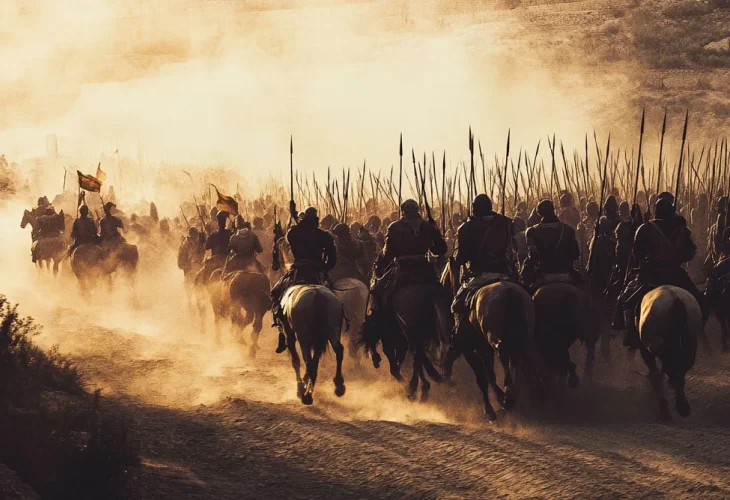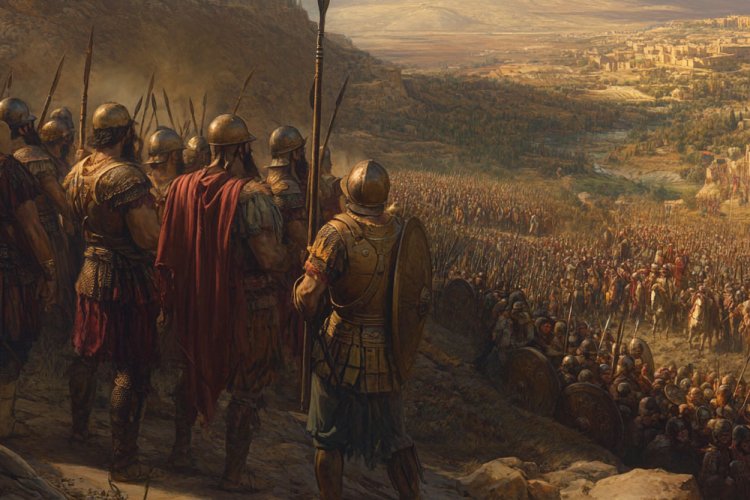The Mysterious Disappearance of the Philistines: A Biblical Journey
Once fierce adversaries of Israel, the Philistines ultimately vanished from history during the reign of King David. Explore their origins, their conflict with the Israelites, and how peace was eventually achieved.

The only nation with whom our forefathers made a covenant in the Land of Israel were the Philistines. Abraham made a covenant with Abimelech, and Isaac eventually renewed it.
The Philistines were Greeks. They hailed from the Greek islands and were called so because they invaded the land. Most nations ruled in the place where they grew and in their native lands. They usually tried to expand their rule, capturing more territory, but the ideal of all nations was to govern the land of their ancestors, the land central to their national stories. They referred to their ancient kings and sought to continue their kingdom. The Philistines, however, appeared not to value their native land. They were expert seafarers and embarked on voyages to find a land that suited them better. In Abraham's day, an initial wave of Philistines came to the land of Canaan and settled in Gerar, located today around the Gaza region.
The second wave of Philistines arrived during the days of Joshua, when they took control over multiple coastal cities from Gaza northwards, and later pressed upon Israel, capturing parts of it. Their peak came when they destroyed the Tabernacle of Shiloh and later defeated Israel on Mount Gilboa, killing King Saul, Israel's first king. The destruction of the Tabernacle and the king's death were among the gravest defeats, equivalent to the first or second Temple's destruction. The difference was that the Philistines did not exile Israel from its land, and during King David's reign, they made peace with Israel. Some even served King David, allowing them to disappear from the region.

What happened once in Egypt, where there was a need to hide the wife, also happened twice in the land of the Philistines. Both Abraham and Isaac had to conceal their wives from the Philistines. Abraham remarked about them, "Surely there is no fear of Hashem in this place, and they will kill me." The Philistines lacked ideology, which is why they left their land. They were not particularly devout in idolatry; a believer in an idol ruling his land would not easily abandon it. Thus, the Torah commands the annihilation of the Canaanites without mercy, as they staunchly adhered to idolatry, unlike the Philistines who were not under this command. It is noteworthy that David managed with them, and there was no need to annihilate them. This lesson can be observed as the forefathers managed to arrange agreements with them, unlike their actions with the Canaanites who kidnapped Dinah. With the Canaanites, no agreements could be reached.
The Philistines were the tribe of Hashem's wrath. They became the primary adversary of Israel from the mid-period of the Judges, serving as a catalyst for Israel to awaken, repent, unite, and crown a single king to build the place chosen by Hashem in Jerusalem. This is symbolically hinted in the Torah: Jacob did not engage with the Philistines, as they were only a nuisance to Abraham and Isaac. Isaac was a complete offering. Since agreeing to be bound for the sacrifice, he never left the Land of Israel; he was born and died there, fully immersed in holiness. This marked the decline of Philistine power against the forefathers. Thus, when King David arrived and unified the nation of Israel into a spiritual center that sanctified the entire Land and inspired divine presence, the Philistines vanished on their own, without needing further battle. Some joined with Israel, while others returned to their lands.
The encounters of the forefathers with the Philistines serve as an omen for their descendants.

